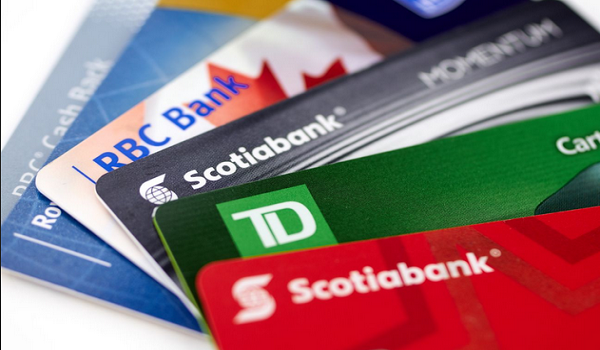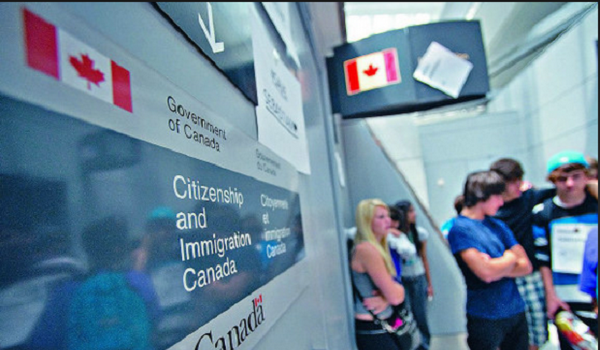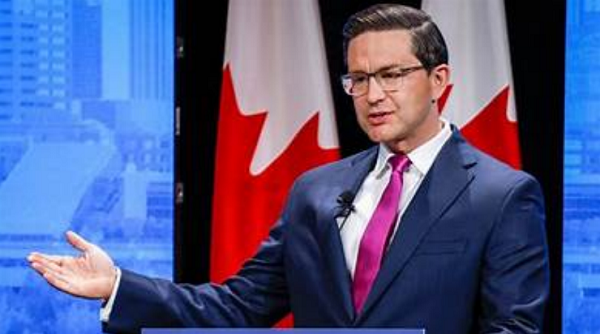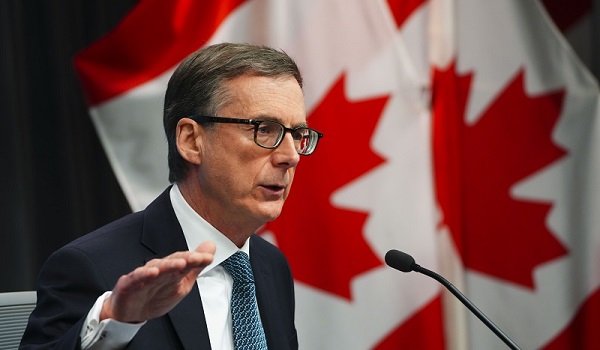The growth rate of Canadians who rely on high-interest credit cards to make ends meet on the rise
Áine Davis uses her credit card to pay for everything — except rent.
The 29-year-old arts administrator who lives in Toronto is able to make biweekly payments, but only so that she can continue to use the MasterCard for essentials like groceries, transit and internet.
“I’m using it like a prepaid credit card,” she says. Her limit is $2,800 but her balance owing sits at $1,500. “I know that’s not a huge amount, but it feels like it will never end because every time I pay it off, I have to use it immediately.”
Davis is far from alone.
Amid punishing interest rates and elevated inflation, Equifax Canada reports that Canadians’ credit card balances hit an all-time high of $107.4 billion in the second quarter of 2023.
And the fact that fewer consumers can pay off their credit card balance in full each month compared to a year ago shows that a growing number of Canadians find themselves trapped in a loop of debt. For some, it feels never-ending.
Prior to the pandemic in 2020, Davis had a solid credit score of 800. Then, lockdowns hit and she found herself unable to work consistently. Though living below her means, her income was less than rent. Over time, Davis began using her credit card to pay for items she couldn’t afford on Canada Emergency Response Benefit (CERB) payments alone.
She dipped into savings, and even took cash advances from her MasterCard to ensure she had enough in the bank to pay rent. That’s when her credit score plummeted to 400.
Today, she is working full-time again and her credit score is back up to a comfortable 750. But most of her paycheck still goes to rent, repaying CERB, income tax and bills, plus covering the 21.9 per cent interest on her high-risk MasterCard (the only one she qualified for at age 21).
It’s not about the money, it’s about your behaviours
She budgets $40 a day for transit, lunch and an occasional coffee or cheap sushi dinner with friends. She’s making more money than she ever has before, yet she’s still unable to pay off her debt. “I can survive paycheck to paycheck,” she says. “But it scares me that at any moment, everything can be taken away.”
Many Canadians are struggling due to inflation right now, says Becky Western-Macfadyen, financial coaching manager for Credit Canada, a non-profit debt counselling agency.
“Almost every single thing that they need to buy (groceries, clothing, travel) is now costing more and their income has not gone up,” says Western-Macfadyen, who finds it “worrying” that more Canadians are opening credit card accounts for the first time. And it’s not to buy discretionary items, she says. “It’s often to buy food, or put gas in the car so they can get to work.”
So how can someone like Davis, who’s struggling with credit card debt, gain control?
Ultimately, Western-Macfadyen says, “it’s not about how much money you make. It’s about your behaviours, your expenses and your actions.”
She says the key is to write the debt down on a piece of paper or in a spreadsheet, along with the lender, the amount you owe, the minimum payments every month, the interest rate and due dates. And be realistic.
“Get honest with yourself,” she says. “You’re likely going to have to make some changes, sometimes really hard changes.”
Make a plan of action by using Credit Canada’s three-step “ABC” approach: analyze, brainstorm, change.
Brainstorm ideas to create more income
Start by analyzing your budget; take a close look at what’s coming in and going out of your bank accounts, including infrequent expenses, like household maintenance and car repairs.
The second step is to brainstorm ideas to create more income. This isn’t about just cutting out lattes, says Western-Macfadyen. You might want to consider taking on a second job temporarily, asking an employer for a raise, renting out a room in your house, and reducing your spending dramatically. You may even want to consider selling household items, pausing contributions to savings and taking a break from kids’ activities.
Other ideas include improving your meal planning and shopping habits, finding more budget-friendly recipes, reading through the flyer from the grocery store to see what meals you can create with sale items.
Saijal Patel, founder and CEO of Saij Elle, a global financial education platform designed for women, recommends cutting out unnecessary subscriptions (sorry, Amazon and Netflix), and renegotiating your plan with your internet provider.
“You’d be surprised at the negotiating power you may have,” says Patel. “Ask them about ways to save. Maybe there’s another plan you can switch to that will save you money. There are often promotions, too.” If you decide to explore taking on a second job, she suggests using sites like Upwork to explore ways to use your skills for freelance opportunities.
The third step is where you decide what to actually change.
“It has to be sustainable,” Western-Macfadyen adds. So don’t sign a mortgage renewal that you won’t be able to keep up with; instead, consider manageable changes like cutting back on your entertainment budget. Continue to track your spending as you make changes so you can see where all your money is going.
“Aim to pay off more than the minimum payment on your credit card if you can — even double that amount can save you a lot of money in interest payments,” Patel says.
‘Any step toward paying debt is a positive step’
If you’re really in over your head with credit card debt, the ABC method may not be enough. That’s when you may want to reach out to a non-profit credit counselling agency such as Credit Canada. They can help you take a look at your income and expenses, and make recommendations for a plan.
You may even want to look into a debt consolidation program, where an agency works with creditors to reduce interest rates and payment amounts. This way, an individual can just make one payment a month to the agency, which then distributes payments to the creditors.
There are monthly fees involved with this approach, but calling Credit Canada to ask for some advice is always free. “We can even walk you through the ABC method or help you with creating a budget,” Western-Macfadyen says.
“If you are drowning in debt, it’s important to consider your options and choose the best course of action for your situation,” says Ilan Kibel, a chartered accountant, licenced insolvency trustee and partner at BDO Canada. Beyond debt consolidation, you can consider other possibilities including a debt management plan, a consumer proposal or bankruptcy. “Each of these options has its own advantages and disadvantages,” Kibel says. A licenced insolvency trustee can help you review your choices to make the right decision.
None of this is easy, Western-Macfadyen adds.
“It’s heartbreaking. We empathize with Canadians — it’s a brutal situation.” If you ever feel stuck or hopeless the way Davis does, she suggests choosing an inspiring word that can be your guiding light, whether it’s ‘family,’ ‘retirement’ or ‘vacationing.’ “Find something that empowers you to keep moving forward.”
Most importantly, “be kind to yourself,” says Patel. “These are unprecedented times. Remember that any step toward paying debt is a positive step.”
This article was reported by The Star
















